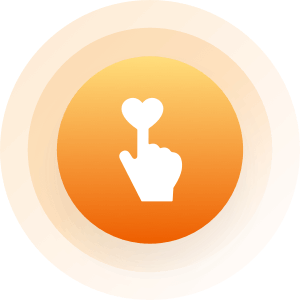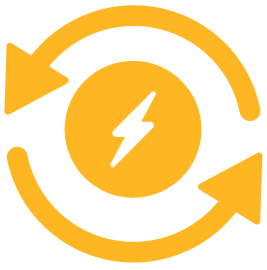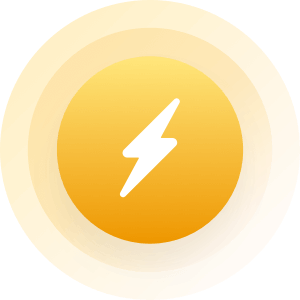Community > Posts By > Bestinshow
|
Topic:
Bradley Manning
Edited by
Bestinshow
on
Fri 07/19/13 01:33 PM
|
|
|
Take Heart Mr Manning, Nelson Mandela was locked away by the entrenched system for many years and the world changed don't give up hope.
|
|
|
|
|
|
Topic:
Jimmy Carter Says
|
|
|
U.S. "Has No Functioning Democracy" July 18, 2013 "Information Clearing House - Former U.S. president Jimmy Carter is so concerned about the NSA spying scandal that he thinks it has essentially resulted in a suspension of American democracy. “America does not at the moment have a functioning democracy,” he said at an event in Atlanta on Tuesday sponsored by the Atlantik Bruecke, a private non-profit association working to further the German-U.S. relationship (its name is German for “Atlantic bridge.”) Carter’s remarks did not appear in the American mainstream press, but were reported from Atlanta by the German newsmagazine Der Spiegel, whose Washington correspondent Gregor Peter Schmitz said on Twitter he was present at the event. The story does not appear in the English-language section of the Spiegel website, but is available only in German. http://www.informationclearinghouse.info/article35582.htm How about our servile corporate media, a former president calls it like it is and gets no press. What a fraud our media has become |
|
|
|
|
|
Topic:
‘Conspiracy theorists’ sane;
|
|
|
Recent studies by psychologists and social scientists in the US and UK suggest that contrary to mainstream media stereotypes, those labeled “conspiracy theorists” appear to be saner than those who accept the official versions of contested events. The most recent study was published on July 8th by psychologists Michael J. Wood and Karen M. Douglas of the University of Kent (UK). Entitled “What about Building 7? A social psychological study of online discussion of 9/11 conspiracy theories,” the study compared “conspiracist” (pro-conspiracy theory) and “conventionalist” (anti-conspiracy) comments at news websites. The authors were surprised to discover that it is now more conventional to leave so-called conspiracist comments than conventionalist ones: “Of the 2174 comments collected, 1459 were coded as conspiracist and 715 as conventionalist.” In other words, among people who comment on news articles, those who disbelieve government accounts of such events as 9/11 and the JFK assassination outnumber believers by more than two to one. That means it is the pro-conspiracy commenters who are expressing what is now the conventional wisdom, while the anti-conspiracy commenters are becoming a small, beleaguered minority. Perhaps because their supposedly mainstream views no longer represent the majority, the anti-conspiracy commenters often displayed anger and hostility: “The research… showed that people who favoured the official account of 9/11 were generally more hostile when trying to persuade their rivals.” Additionally, it turned out that the anti-conspiracy people were not only hostile, but fanatically attached to their own conspiracy theories as well. According to them, their own theory of 9/11 - a conspiracy theory holding that 19 Arabs, none of whom could fly planes with any proficiency, pulled off the crime of the century under the direction of a guy on dialysis in a cave in Afghanistan - was indisputably true. The so-called conspiracists, on the other hand, did not pretend to have a theory that completely explained the events of 9/11: “For people who think 9/11 was a government conspiracy, the focus is not on promoting a specific rival theory, but in trying to debunk the official account.” In short, the new study by Wood and Douglas suggests that the negative stereotype of the conspiracy theorist - a hostile fanatic wedded to the truth of his own fringe theory - accurately describes the people who defend the official account of 9/11, not those who dispute it. Additionally, the study found that so-called conspiracists discuss historical context (such as viewing the JFK assassination as a precedent for 9/11) more than anti-conspiracists. It also found that the so-called conspiracists to not like to be called “conspiracists” or “conspiracy theorists.” Both of these findings are amplified in the new book Conspiracy Theory in America by political scientist Lance deHaven-Smith, published earlier this year by the University of Texas Press. Professor deHaven-Smith explains why people don’t like being called “conspiracy theorists”: The term was invented and put into wide circulation by the CIA to smear and defame people questioning the JFK assassination! “The CIA’s campaign to popularize the term ‘conspiracy theory’ and make conspiracy belief a target of ridicule and hostility must be credited, unfortunately, with being one of the most successful propaganda initiatives of all time.” In other words, people who use the terms “conspiracy theory” and “conspiracy theorist” as an insult are doing so as the result of a well-documented, undisputed, historically-real conspiracy by the CIA to cover up the JFK assassination. That campaign, by the way, was completely illegal, and the CIA officers involved were criminals; the CIA is barred from all domestic activities, yet routinely breaks the law to conduct domestic operations ranging from propaganda to assassinations. DeHaven-Smith also explains why those who doubt official explanations of high crimes are eager to discuss historical context. He points out that a very large number of conspiracy claims have turned out to be true, and that there appear to be strong relationships between many as-yet-unsolved “state crimes against democracy.” An obvious example is the link between the JFK and RFK assassinations, which both paved the way for presidencies that continued the Vietnam War. According to DeHaven-Smith, we should always discuss the “Kennedy assassinations” in the plural, because the two killings appear to have been aspects of the same larger crime. Psychologist Laurie Manwell of the University of Guelph agrees that the CIA-designed “conspiracy theory” label impedes cognitive function. She points out, in an article published in American Behavioral Scientist (2010), that anti-conspiracy people are unable to think clearly about such apparent state crimes against democracy as 9/11 due to their inability to process information that conflicts with pre-existing belief. In the same issue of ABS, University of Buffalo professor Steven Hoffman adds that anti-conspiracy people are typically prey to strong “confirmation bias” - that is, they seek out information that confirms their pre-existing beliefs, while using irrational mechanisms (such as the “conspiracy theory” label) to avoid conflicting information. The extreme irrationality of those who attack “conspiracy theories” has been ably exposed by Communications professors Ginna Husting and Martin Orr of Boise State University. In a 2007 peer-reviewed article entitled “Dangerous Machinery: ‘Conspiracy Theorist’ as a Transpersonal Strategy of Exclusion,” they wrote: “If I call you a conspiracy theorist, it matters little whether you have actually claimed that a conspiracy exists or whether you have simply raised an issue that I would rather avoid… By labeling you, I strategically exclude you from the sphere where public speech, debate, and conflict occur.” But now, thanks to the internet, people who doubt official stories are no longer excluded from public conversation; the CIA’s 44-year-old campaign to stifle debate using the “conspiracy theory” smear is nearly worn-out. In academic studies, as in comments on news articles, pro-conspiracy voices are now more numerous - and more rational - than anti-conspiracy ones. No wonder the anti-conspiracy people are sounding more and more like a bunch of hostile, paranoid cranks. http://www.presstv.ir/detail/2013/07/12/313399/conspiracy-theorists-vs-govt-dupes/ They compared two different Groups of Conspiracy-Theorists! That's all there is to! Ain't said nothing about the Physicists and the Engineering Professions! Then,of Course,PressTV put it's Own Little Spin to it,and,as usual,put Apples,Oranges and Bananas together,and created yet another Fruitsalad! 
Are you ready? Can you take the suspence? Here it is. My favorite sentence. "No wonder the anti-conspiracy people are sounding more and more like a bunch of hostile, paranoid cranks." |
|
|
|
|
|
Topic:
‘Conspiracy theorists’ sane;
Edited by
Bestinshow
on
Tue 07/16/13 01:08 PM
|
|
|
To judge all skeptics who question the official conspiracy theory the same, and label them as "nuts" or "truthers" or "conspiracy theorists" is just lazy and ignorant. In spite of that tactic, developed by the untrustworthy CIA, I am still a skeptic. Of course they are going to want everyone to believe people who have an alternate theory are some kind of nut. That's probably because they themselves are the perpetrators of most of the terrorist activity being carried out in the world. The CIA does not want any thinking scientist or citizen to start snooping around in their wet work and black ops. People need to use right discrimination and question everything that does not ring true. opinions are like buttholes, everyone has one... one of the problems is that everyone thinks they are right, when if fact, there are very few people that actually know the real truth in most CT comments... I know what is not true The "official government sanctioned" version of 911 |
|
|
|
|
|
Topic:
‘Conspiracy theorists’ sane;
|
|
|
I agree some are way out there and some of those are possible "sockpuppets" put out there to cloud the topic.
What I cant stand is if someone raises the serious questions of 911 they are called a CT'r. Two months ago if anyone had said seriously the government is recording every Email and text damn near all over the world they would have been labeled a crazy CT'r. |
|
|
|
|
|
Topic:
‘Conspiracy theorists’ sane;
Edited by
Bestinshow
on
Mon 07/15/13 01:04 PM
|
|
|
I would refer back to the original post that discusses the events of 911 and stay on that topic. We all know all the different peoples in this world some insane that come up with the oddest things......
Lets face it this is not the america we expected or were taught to expect when in grade school. 300 million of us are under observation at all times yet they could not stop the Boston tragedy...... so whats the point of spending billions if not trillions on this and then have our politicians focus on food stamps for the poor that probably cost this country pennies compared to what we spend on surveillance. 911 was the day the America I expected to live in died. So lets take a good hard honest look at it. That is what a sane person would do. One has to ask themselves this. Why did Bush and Cheney both refuse to go under oath to the 911 commission? |
|
|
|
|
|
Topic:
‘Conspiracy theorists’ sane;
|
|
|
I am no psychologist but my understanding is this.
The professionals state that those who present a pro conspiracy argument are more rational in their arguments and hence their state of mind than those who take the anti conspiracy argument. A scroll up this thread is a good example of this. |
|
|
|
|
|
Topic:
Edward Snowden's martyrdom
|
|
|
Putin : by the way Mr Obama respect your countries 4th amendment before you tell me how to run my country.
|
|
|
|
|
|
Topic:
‘Conspiracy theorists’ sane;
|
|
|
still missing how any of the op pertains to ones 'sanity' so, on the issue of September 11, they collected more people who believed in a conspiracy than who didn't and,,what does that prove about 'conspiracists' and their sanity,,,? don't get it Well to me that is what the study done by professionals implies ok,, just doesn't seem like much of a study of conspiracists in any broad sense if it was restricted to one topic,,,,,instead of several random topics compared collectively,,,, I posted an article of a study done at a university by phycologists. The only comment made by a anti conspiracy poster was the source, press TV. The poster did not say what issue he had with press TV or dispute the study, that is an example of an irrational argument. |
|
|
|
|
|
Topic:
‘Conspiracy theorists’ sane;
Edited by
Bestinshow
on
Sun 07/14/13 03:55 AM
|
|
|
still missing how any of the op pertains to ones 'sanity' so, on the issue of September 11, they collected more people who believed in a conspiracy than who didn't and,,what does that prove about 'conspiracists' and their sanity,,,? don't get it Well to me that is what the study done by professionals implies |
|
|
|
|
|
Topic:
‘Conspiracy theorists’ sane;
|
|

never get tired of patting yourself on the back i see... 
Is there something wrong with Press TV? 
The most recent study was published on July 8th by psychologists Michael J. Wood and Karen M. Douglas of the University of Kent (UK). Entitled “What about Building 7? A social psychological study of online discussion of 9/11 conspiracy theories,” the study compared “conspiracist” (pro-conspiracy theory) and “conventionalist” (anti-conspiracy) comments at news websites. "The authors were surprised to discover that it is now more conventional to leave so-called conspiracist comments than conventionalist ones: “Of the 2174 comments collected, 1459 were coded as conspiracist and 715 as conventionalist.” In other words, among people who comment on news articles, those who disbelieve government accounts of such events as 9/11 and the JFK assassination outnumber believers by more than two to one. That means it is the pro-conspiracy commenters who are expressing what is now the conventional wisdom, while the anti-conspiracy commenters are becoming a small, beleaguered minority. " Get it? it was a university? is it hard to understand? I have to wonder if its this site that was the focus of the study. "In short, the new study by Wood and Douglas suggests that the negative stereotype of the conspiracy theorist - a hostile fanatic wedded to the truth of his own fringe theory - accurately describes the people who defend the official account of 9/11, not those who dispute it." |
|
|
|
|
|
Same with all corporate controlled agenda driven mainstream media.
|
|
|
|
|
|
Topic:
‘Conspiracy theorists’ sane;
|
|
|
Recent studies by psychologists and social scientists in the US and UK suggest that contrary to mainstream media stereotypes, those labeled “conspiracy theorists” appear to be saner than those who accept the official versions of contested events.
The most recent study was published on July 8th by psychologists Michael J. Wood and Karen M. Douglas of the University of Kent (UK). Entitled “What about Building 7? A social psychological study of online discussion of 9/11 conspiracy theories,” the study compared “conspiracist” (pro-conspiracy theory) and “conventionalist” (anti-conspiracy) comments at news websites. The authors were surprised to discover that it is now more conventional to leave so-called conspiracist comments than conventionalist ones: “Of the 2174 comments collected, 1459 were coded as conspiracist and 715 as conventionalist.” In other words, among people who comment on news articles, those who disbelieve government accounts of such events as 9/11 and the JFK assassination outnumber believers by more than two to one. That means it is the pro-conspiracy commenters who are expressing what is now the conventional wisdom, while the anti-conspiracy commenters are becoming a small, beleaguered minority. Perhaps because their supposedly mainstream views no longer represent the majority, the anti-conspiracy commenters often displayed anger and hostility: “The research… showed that people who favoured the official account of 9/11 were generally more hostile when trying to persuade their rivals.” Additionally, it turned out that the anti-conspiracy people were not only hostile, but fanatically attached to their own conspiracy theories as well. According to them, their own theory of 9/11 - a conspiracy theory holding that 19 Arabs, none of whom could fly planes with any proficiency, pulled off the crime of the century under the direction of a guy on dialysis in a cave in Afghanistan - was indisputably true. The so-called conspiracists, on the other hand, did not pretend to have a theory that completely explained the events of 9/11: “For people who think 9/11 was a government conspiracy, the focus is not on promoting a specific rival theory, but in trying to debunk the official account.” In short, the new study by Wood and Douglas suggests that the negative stereotype of the conspiracy theorist - a hostile fanatic wedded to the truth of his own fringe theory - accurately describes the people who defend the official account of 9/11, not those who dispute it. Additionally, the study found that so-called conspiracists discuss historical context (such as viewing the JFK assassination as a precedent for 9/11) more than anti-conspiracists. It also found that the so-called conspiracists to not like to be called “conspiracists” or “conspiracy theorists.” Both of these findings are amplified in the new book Conspiracy Theory in America by political scientist Lance deHaven-Smith, published earlier this year by the University of Texas Press. Professor deHaven-Smith explains why people don’t like being called “conspiracy theorists”: The term was invented and put into wide circulation by the CIA to smear and defame people questioning the JFK assassination! “The CIA’s campaign to popularize the term ‘conspiracy theory’ and make conspiracy belief a target of ridicule and hostility must be credited, unfortunately, with being one of the most successful propaganda initiatives of all time.” In other words, people who use the terms “conspiracy theory” and “conspiracy theorist” as an insult are doing so as the result of a well-documented, undisputed, historically-real conspiracy by the CIA to cover up the JFK assassination. That campaign, by the way, was completely illegal, and the CIA officers involved were criminals; the CIA is barred from all domestic activities, yet routinely breaks the law to conduct domestic operations ranging from propaganda to assassinations. DeHaven-Smith also explains why those who doubt official explanations of high crimes are eager to discuss historical context. He points out that a very large number of conspiracy claims have turned out to be true, and that there appear to be strong relationships between many as-yet-unsolved “state crimes against democracy.” An obvious example is the link between the JFK and RFK assassinations, which both paved the way for presidencies that continued the Vietnam War. According to DeHaven-Smith, we should always discuss the “Kennedy assassinations” in the plural, because the two killings appear to have been aspects of the same larger crime. Psychologist Laurie Manwell of the University of Guelph agrees that the CIA-designed “conspiracy theory” label impedes cognitive function. She points out, in an article published in American Behavioral Scientist (2010), that anti-conspiracy people are unable to think clearly about such apparent state crimes against democracy as 9/11 due to their inability to process information that conflicts with pre-existing belief. In the same issue of ABS, University of Buffalo professor Steven Hoffman adds that anti-conspiracy people are typically prey to strong “confirmation bias” - that is, they seek out information that confirms their pre-existing beliefs, while using irrational mechanisms (such as the “conspiracy theory” label) to avoid conflicting information. The extreme irrationality of those who attack “conspiracy theories” has been ably exposed by Communications professors Ginna Husting and Martin Orr of Boise State University. In a 2007 peer-reviewed article entitled “Dangerous Machinery: ‘Conspiracy Theorist’ as a Transpersonal Strategy of Exclusion,” they wrote: “If I call you a conspiracy theorist, it matters little whether you have actually claimed that a conspiracy exists or whether you have simply raised an issue that I would rather avoid… By labeling you, I strategically exclude you from the sphere where public speech, debate, and conflict occur.” But now, thanks to the internet, people who doubt official stories are no longer excluded from public conversation; the CIA’s 44-year-old campaign to stifle debate using the “conspiracy theory” smear is nearly worn-out. In academic studies, as in comments on news articles, pro-conspiracy voices are now more numerous - and more rational - than anti-conspiracy ones. No wonder the anti-conspiracy people are sounding more and more like a bunch of hostile, paranoid cranks. http://www.presstv.ir/detail/2013/07/12/313399/conspiracy-theorists-vs-govt-dupes/ |
|
|
|
|
|
PRESS RELEASE: World Service Authority Issues World Passport to Edward Snowden WSA Issues World Passport to Edward Snowden Based Upon Article 13 (2) of the Universal Declaration of Human Rights For Immediate Release: Sunday July 7, 2013 http://www.nostate.com/4358/press-release-world-service-authority-issues-world-passport-to-edward-snowden We used to be give me liberty or give me death, now we are a nation of craven subservient cowards claiming "keep me safe at all costs". |
|
|
|
|
|
When propaganda got a bad name it was changed to "public relations"
A person really needs to watch this and observe the world around them. |
|
|
|
|
|
If you only posted what the NSA guys said, it would mean little. I'm no fan of the NSA or big government, but this piece is just some college kid doing some bashing. Feel free to follow the link and then make an informed comment. 


You really want to tell me that the NSA is going around having public Hiring-Drives like GE! Your Credulity is absolutely astounding! 
Hook,Line and Sinker! Credulity is a state of willingness to believe in one or many people or things in the absence of reasonable proof or knowledge. Credulity is not simply belief in something that may be false. The subject of the belief may even be correct, but a credulous person will believe it without good evidence.WIKI http://en.wikipedia.org/wiki/Credulity What has shaped your conclusions? Nothing? 
|
|
|
|
|
|
What a crock! How so?...You don't believe the conversation took place? No, I didn't say that. I've heard the recording. So what's the "crock"? No luck needed. The comments one makes can be very revealing. I get peoples' agreement by asking questions. If they don't respond in a reasonable period of time, that is called "going silent", which places the questioned party into dishonour. If their response doesn't directly address the question, that is still "going silent". In either event, when they go silent, I have their agreement that they have a hidden agenda behind their comments, aspersive innuendo or otherwise. 
|
|
|
|
|
|
by Daniel Ellsberg
Many people compare Edward Snowden to me unfavorably for leaving the country and seeking asylum, rather than facing trial as I did. I don’t agree. The country I stayed in was a different America, a long time ago.(Photo: The Guardian)After the New York Times had been enjoined from publishing the Pentagon Papers — on June 15, 1971, the first prior restraint on a newspaper in U.S. history — and I had given another copy to The Post (which would also be enjoined), I went underground with my wife, Patricia, for 13 days. My purpose (quite like Snowden’s in flying to Hong Kong) was to elude surveillance while I was arranging — with the crucial help of a number of others, still unknown to the FBI — to distribute the Pentagon Papers sequentially to 17 other newspapers, in the face of two more injunctions. The last three days of that period was in defiance of an arrest order: I was, like Snowden now, a “fugitive from justice.” Yet when I surrendered to arrest in Boston, having given out my last copies of the papers the night before, I was released on personal recognizance bond the same day. Later, when my charges were increased from the original three counts to 12, carrying a possible 115-year sentence, my bond was increased to $50,000. But for the whole two years I was under indictment, I was free to speak to the media and at rallies and public lectures. I was, after all, part of a movement against an ongoing war. Helping to end that war was my preeminent concern. I couldn’t have done that abroad, and leaving the country never entered my mind. There is no chance that experience could be reproduced today, let alone that a trial could be terminated by the revelation of White House actions against a defendant that were clearly criminal in Richard Nixon’s era — and figured in his resignation in the face of impeachment — but are today all regarded as legal (including an attempt to “incapacitate me totally”). I hope Snowden’s revelations will spark a movement to rescue our democracy, but he could not be part of that movement had he stayed here. There is zero chance that he would be allowed out on bail if he returned now and close to no chance that, had he not left the country, he would have been granted bail. Instead, he would be in a prison cell like Bradley Manning, incommunicado. He would almost certainly be confined in total isolation, even longer than the more than eight months Manning suffered during his three years of imprisonment before his trial began recently. The United Nations Special Rapporteur for Torture described Manning’s conditions as “cruel, inhuman and degrading.” (That realistic prospect, by itself, is grounds for most countries granting Snowden asylum, if they could withstand bullying and bribery from the United States.) Snowden believes that he has done nothing wrong. I agree wholeheartedly. More than 40 years after my unauthorized disclosure of the Pentagon Papers, such leaks remain the lifeblood of a free press and our republic. One lesson of the Pentagon Papers and Snowden’s leaks is simple: secrecy corrupts, just as power corrupts. Daniel Ellsberg Daniel Ellsberg was put on trial in 1973 for leaking the Pentagon Papers, but the case was dismissed after four months because of government misconduct. He is the author of "Secrets: A Memoir of Vietnam and the Pentagon Papers." http://www.commondreams.org/view/2013/07/08-3 |
|
|
|
|
|
It’s little wonder that despite his disclosure of an unprecedented KBG-like or Stasi-like spying program targeting all Americans, fully half of all Americans polled are saying that National Security Agency whistleblower Edward Snowden is a “spy” or “traitor” who should be brought to justice.
Why would this be, when a solid majority also say they oppose the spying program? A major reason would be that the politicians and other Washington leaders like Armed Forces Chief of Staff Gen. Martin Dempsey are lying, claiming that Snowden has damaged US national security. Another would be that the corporate media are pushing the line that Snowden is not a civil-liberties motivated whistle-blowing patriot, but rather a traitor or a spy. Take the Philadelphia Inquirer. A couple of days ago, this once-respected paper in one of America’s major cities ran a piece about Snowden, calling him a “spy” in the headline, though there was no mention of the word spy in the article itself. Without any sense of irony, the paper ran another article that day on the same page about the anger in Europe over the NSA’s spying on Europeans and their governments -- supposedly America’s allies -- and while that article was about spying by the US government, the headline eschewed using the word “spy.” I called the paper’s city desk to complain and was told by a seemingly sympathetic editor on the desk that the head of the copy desk would call me, but of course, he never did. Nor did the paper deign to publish a letter I sent in criticizing the decision to use the word “spy” to describe Snowden. Then today, the Inquirer did it again. This time it was an AP article on page two of the paper reporting on comments made by Gen. Dempsey on CNN’s “State of the Union” program. Again, the Inquirer’s headline was “Dempsey: Spy has harmed relations.” But the piece, which refers to Snowden as a “leaker,” never does call Snowden a “spy.” Nor does Gen. Dempsey, at least as quoted in the article. The “spy” terminology is purely the work of the paper’s editors. That’s not to say Gen. Dempsey isn’t also messing with the truth in this case. He stated on the CNN program that Snowden’s disclosure about global surveillance programs targeting allies in Europe and elsewhere had “undermined US relationships with other countries” and affected what he called “the importance of trust.” As Dempsey put it, “the US will have to work its way back. but it (the disclosure by Snowden) will set us back temporarily.” Think about that a minute -- something the writer of the article clearly didn’t bother to do, and which, sadly, most CNN viewers and newspaper readers probably won’t do either: Was it Snowden’s revelations of the NSA’s spying on friendly countries and millions of their citizens that undermined trust in the US, or was it the spying itself? http://www.thiscantbehappening.net/node/1854 |
|
|
|
|
|
Topic:
Edward Snowden's martyrdom
Edited by
Bestinshow
on
Mon 07/08/13 04:14 PM
|
|
|
Snowden is not the traitor its those who violate the constitution. Anyone hear about the fourth amendment?
|
|
|
|
|






